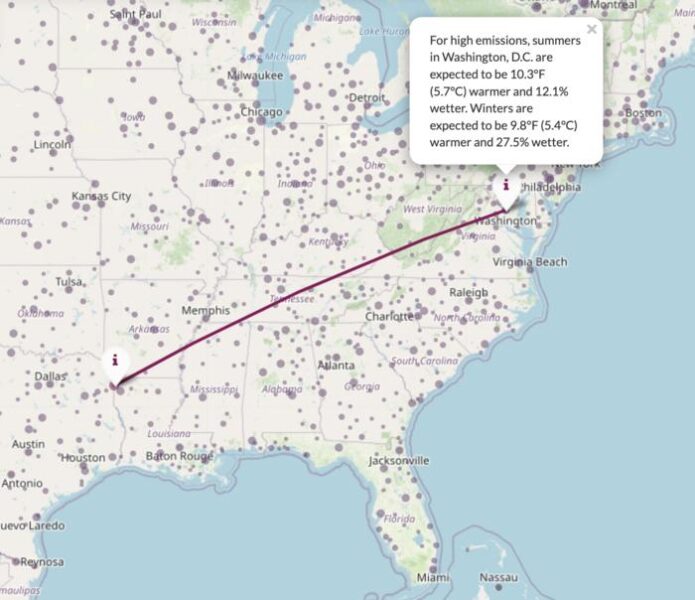A new web app lets you explore how climate change will make your hometown feel like a completely different place in the coming decades. Developed by the University of Maryland Center for Environmental Science, this interactive tool matches the expected future climate of over 40,000 cities worldwide with the current climate of another location.
Feeling the Heat
“In 50 years, the northern hemisphere cities to the north are going to become much more like cities to the south. Everything is moving towards the equator in terms of the climate that’s coming for you,” said Professor Matthew Fitzpatrick, the spatial ecologist behind the app.
For example, if you live in Washington, D.C., you would need to travel to northern Louisiana to experience what Washington, D.C., will feel like by 2080, where summers are expected to be 11.5°F warmer in 50 years. If you live in Shanghai, China, you would need to travel to northern Pakistan to experience what Shanghai’s climate could be like in 2080.
Mapping Climate Analogs
Fitzpatrick used climate-analog mapping, a statistical technique that matches the expected future climate at one location with the current climate of another familiar location, to provide a place-based understanding of climate change. He used data from the Intergovernmental Panel on Climate Change (IPCC) to illustrate anticipated temperature changes over 30 years under two different scenarios.
The first scenario assumes very high greenhouse gas emissions, with the planet on track to warm around 9 degrees F by 2100 – warmer than it likely has been in millions of years. The second scenario aligns with Paris Climate Accord goals of immediately and drastically reducing emissions, limiting warming to about 3 degrees F.
“I hope that it continues to inform the conversation about climate change. I hope it helps people better understand the magnitude of the impacts and why scientists are so concerned,” said Fitzpatrick.
Explore how your city’s climate will change at www.umces.edu/futureurbanclimates
For more climate resources:


